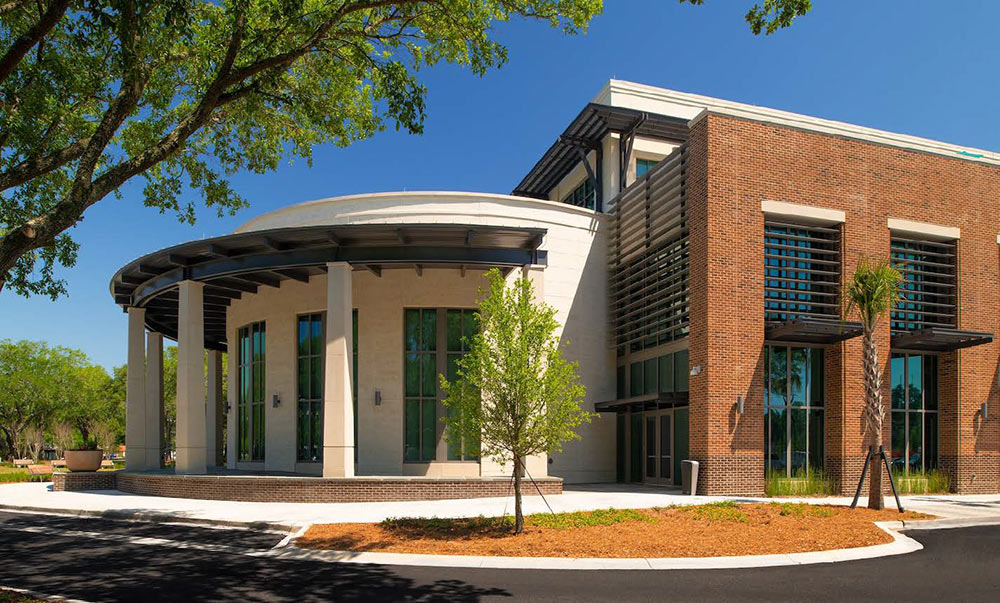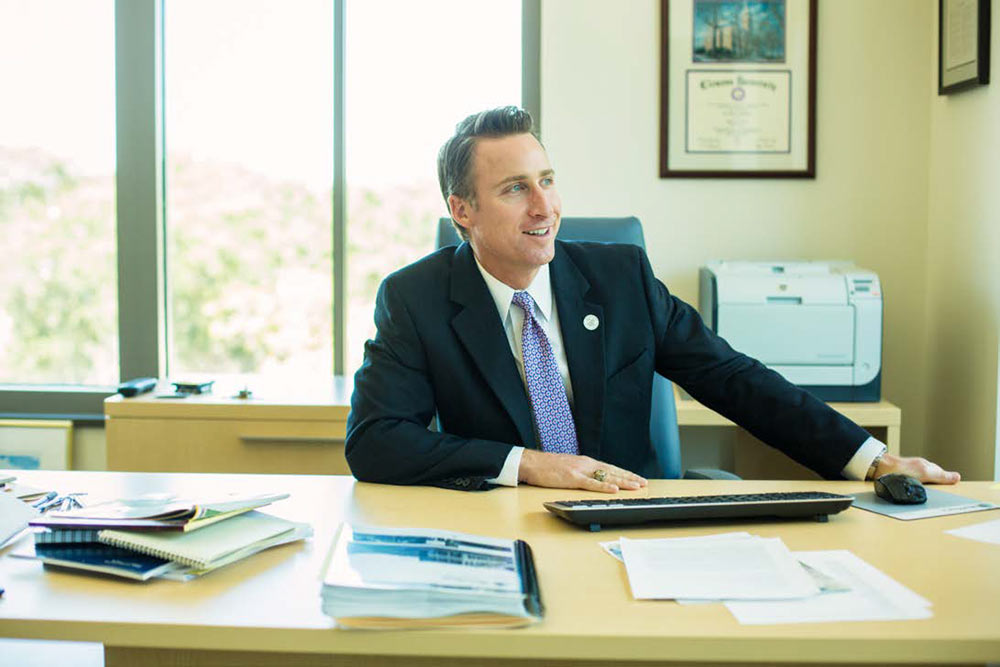
![]() Click to Listen to Eric DeMoura
Click to Listen to Eric DeMoura
As we shelter at home during the pandemic and play our own part in flattening the curve, the Town of Mount Pleasant must still provide essential services to its shut-in citizens.
So, what is it like to run a town of 90,000 people during an unparalleled public health crisis?
“It has certainly been challenging,” acknowledged Town Administrator Eric DeMoura. “But we’ve got a job to do and we can’t fail.”
DeMoura has been conducting meetings primarily through videoconferencing and teleconferencing. While police, fire, public works, court and administration are at work, those employees who do not have to be physically at their jobs are working from home successfully, which amounts to roughly 25% of the town’s 700-person workforce.
He teleconferences with his leadership team (high-level staff including department heads, the town attorney, emergency manager, risk manager, human resources director, etc.) every day to ensure operational objectives are being met, and to discuss public health and morale.
“It’s my job making sure our leadership team remains focused and prepared to meet this challenge,” stated DeMoura, who has served as town administrator since 2010. “The good news is fortunately we have great people. And we have strong leadership from the mayor and the town council.”
He noted that the leadership team recognized COVID-19’s threat early and started planning for it operationally in February. With the initial groundwork laid, they were ready for the task of developing strategies to meet their operational goals quickly.

DeMoura outlined five operational objectives, the first of which is continuity of community lifelines and critical services. This means ensuring that police and fire protection, garbage pick-up and building inspections important to public health are operational. This also entails providing support and (police) protection for hospitals, grocery stores and public utilities.
Another objective is reducing the risk of public health officials’ exposure to COVID-19. A third is decreasing the risk of the community’s exposure, which has involved advising the public to follow CDC-recommended social distancing guidelines and canceling festivals and events where crowds would gather. The fourth is devising ways to mitigate the pandemic’s economic impact.
 Remarked DeMoura, “The town has been collaborating with the business community from the beginning, partnering with the Mount Pleasant Chamber of Commerce and Lowcountry Local First.”
Remarked DeMoura, “The town has been collaborating with the business community from the beginning, partnering with the Mount Pleasant Chamber of Commerce and Lowcountry Local First.”
For support and guidance during COVID-19, the town’s website details an extensive list of resources businesses can access.
Additionally, before, during and after a disaster event of any kind, the town has designated staff whose primary focus is providing support to businesses and commerce. This includes Continuity of Operations Plans (COOP), which contain information on how to continue functioning amidst a natural disaster or other emergency situation.
“It’s important that everyone have a strong COOP to get them through hard times,” stated DeMoura. He added that one of the emergency manager’s responsibilities is speaking with any local business that requests help developing their own COOP.
While meeting operational objectives has gone smoothly, DeMoura said the hardest decision the leadership team has faced is finding the balance between public health and economics when the information they receive is in constant flux.
“It’s difficult to find the right pace in this,” observed DeMoura.
Another matter the leadership team has discussed is consideration of what is most important to preserve during this crisis. The answer has been twofold. “It’s maintaining public trust. It’s teamwork,” asserted DeMoura. “I aspire to be calm, to be measured, to ensure our morale is high.”
One certainty is that the town’s budget will take a hit, specifically with respect to special revenues, such as hospitality taxes. In Mount Pleasant, there is a 2% tax levied on any prepared food and beverage, and accommodations tax on hotel rooms that will see declines. To what degree is still unclear as the situation evolves. The town is also unaware of how much federal stimulus money will be available to municipalities.
DeMoura cited some initial actions taken to “help absorb the impact and keep our house in order.”
These include a hiring freeze as a town, except for essential positions like fire or police personnel. They have already frozen 20 positions, which saved $1 million. The town’s 2021 budget had tentatively incorporated raises for its 700 employees, but DeMoura has proposed postponing them to save another $2 million.
 “We’re a lot like schools in a way,” explained DeMoura. “Most of our money is in personnel. And that’s what we can address.”
“We’re a lot like schools in a way,” explained DeMoura. “Most of our money is in personnel. And that’s what we can address.”
Speaking to eventual re-openings and recovery planning (the town’s fifth operational objective), DeMoura said he expects a gradual transition similar to how the closures worked, with a decision that weighs public health information and economics.
“I believe it will be a phased, sequential roll-out,” he said.
Because of the varying timelines when stay-at-home orders were enacted, both internationally and nationally, DeMoura added that one benefit towns like Mount Pleasant will have is assessing what has and has not worked elsewhere.
He envisions restaurants opening with limited numbers initially and businesses applying a cautious approach that maintains social distancing measures.
There is no denying that the road back will be arduous.
“We have to acknowledge that a lot of people have been really hurt by this,” proclaimed DeMoura.
But he also mentioned some positive take-aways that should give us hope for the future.
“We have learned that we are stronger as a community, and we have a community made up of exceptional people who really care about one another. This experience has really reinforced that. It has also forced us to appreciate the things in life that are most important to us.”
Sources: Mount Pleasant Magazine, Census and the Town of Mount Pleasant.
By Colin McCandless


Leave a Reply